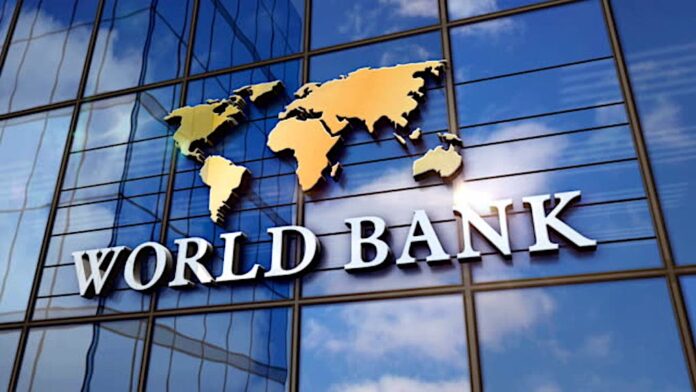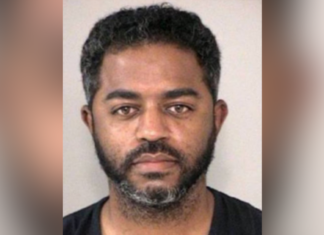World Bank disburses entire $1.5b loan after Nigeria met all conditions
By Jeph Ajobaju, Chief Copy Editor
Nigeria has received an entire $1.5 billion World Bank loan after meeting conditions that stipulate implementation of key reforms, including removing fuel subsidy and introducing comprehensive tax policies.
The loan – part of the Reforms for Economic Stabilisation to Enable Transformation Development Policy Financing initiative – is among the fastest disbursements Nigeria has received with both tranches released in less than six months.
A document produced by the World Bank shows the loan was approved on 13 June 2024, with the first tranche of $750 million disbursed on 2 July 2024.
The second tranche, tied to the fulfilment of specific economic reforms, was disbursed in November 2024.
The rapid disbursement contrasts with other loan programmes which typically experience delays due to slow or partial implementation of conditions, per reporting by The PUNCH.
To put it in context, another loan of $750 million was approved on the same 13 June 2024 for the Accelerating Resource Mobilisation Reforms Programme for Results (ARMOR) project in Nigeria but the World Bank has disbursed only about $1.88 million, less than one per cent of the total approved amount.
The $1.5 billion loan disbursed was structured in two tranches with different maturity periods.
The first tranche was a $750 million credit from the International Development Association (IDA), with a 12-year maturity and six-year grace period.
The second tranche, a $750m loan from the International Bank for Reconstruction and Development (IBRD), has a 24-year repayment period with an 11-year grace period.
“This document summarises the progress made under the Reforms for Economic Stabilisation to Enable Transformation Development Policy Financing for the Federal Republic of Nigeria (Borrower or Recipient), which was approved by the Executive Directors on June 13, 2024,” the World Bank said in the document.
“The DPF is a standalone operation comprising two tranches: (1) first tranche comprising $750m credit from the International Development Association (Association) (Shorter Maturity Loan terms with 12-year maturity and grace period of 6 years, Credit No. 7567-NG); and (2) second tranche comprising $750m loan from the International Bank for Reconstruction and Development (Bank) (US dollar-denominated, commitment-linked loan with 24-year maturity and grace period of 11 years, Loan No.9683-NG).
“The Financing Agreement and Loan Agreement were signed and declared effective on June 19, 2024 and June 26, 2024, respectively. The first tranche was released on July 2, 2024.”
World Bank loans given to Nigeria between June 2023 and December 2024
Nigeria has obtained a total $757.57 billion loan from the World Bank alone since Bola Tinubu became President on 29 May 2023 – broken down as follows:
1. 9 June 2023
$750m – for power sector
2. 27 June 2023
$500m – women empowerment
3. July 2023
$800m – Cushion the impact of fuel subsidy removal
4. September 2023
$700m – Girls’ education
5. 14 December 2023
$750m – renewable energy
6. 13 June 2024
$1.5b – economic stabilisation reforms
7. 13 June 2024
$750m – resource mobilisation reforms
8. September 2024
$1.57b – health, education, sustainable power supply
9. October 2024
$500m – Sustainable Power and Irrigation for Nigeria (SPIN) initiative
10. December 2024
$500m – rural access and agricultural marketing
Total – $757.57 billion.
These figure were collated from media reports (not in the World Bank document cited in this story) and may be higher if loans obtained were not reported or involved dealings that were not transparent.
Critical reform that unlocked second tranche
The World Bank document did not state when the disbursement for the second tranche was made but further findings show that Nigeria got a $750 million disbursement from the World Bank in November.
According to the document seen by The PUNCH, a critical reform that unlocked the second tranche was the removal of fuel subsidy.
The World Bank commended the government for not only meeting the condition but exceeding expectations by fully deregulating the fuel market.
The document noted that “In terms of implementation, while the TRC [Tranche Release Conditions] formulation required introducing the change over a specified time-bound implementation period, the Borrower has moved ahead and made the change immediately, thereby overachieving the TRC in this respect.
“Effective October 2024, the price of PMS has been determined by the international market and the exchange rate set by the Central Bank of Nigeria.”
This move has allowed petrol prices to align with international market rates and exchange rates, effectively ending the implicit subsidies that had burdened public finances.
Fuel prices have increased more than fivefold since the reform process began in mid-2023, a change that has drawn both praise for its fiscal prudence and criticism for its impact on living costs.
In addition to removing fuel subsidies, the federal government introduced sweeping tax reforms aimed at improving revenue mobilisation.
The Nigeria Tax Bill 2024, submitted to the National Assembly (NASS), proposes a gradual increase in the Value Added Tax (VAT) rate to 10 per cent by 2025, alongside measures to simplify tax compliance and expand input tax credits for businesses.
“The Borrower has successfully carried out the programme as outlined in the Letter of Development Policy, with progress along all areas supported by the DPF. Following the implementation of the reforms that constituted prior actions for the first tranche of the RESET DPF (disbursed on June 28, 2024), the Borrower continues to carry out the program as planned.
“The borrower has prepared and submitted to the National Assembly on October 3, 2024, a comprehensive package of tax reforms, which not only reform the VAT regime but also simplify tax policy laws and tax administration.
“Reforms have also been implemented to fully deregulate the fuel market, ensuring that retail prices are determined by market conditions and opening the sector to competition. The authorities are following through on their commitment to cease deficit monetization, relying instead on standard debt instruments to finance the deficit.”
The World Bank noted three key conditions in the document, the first being increasing net oil revenues.
For the first condition, it noted that there was a Presidential Executive Order that mandated that all fiscal transfers, including crude oil sales and gasoline imports, be executed at the prevailing market exchange rate, with naira-based transactions starting in October 2024, effectively addressing implicit subsidies.
The second condition was to increase non-oil revenue, and in this regard, the government submitted a draft bill to the National Assembly proposing a VAT rate increase to 10 per cent in 2025, while also allowing input tax credits for capital and services.
The third condition is to ensure social protection delivery was strengthened, and the document noted the submission of an amendment bill mandating the use of the National Social Registry as the primary targeting tool for social investment programs.
The World Bank described the reforms as necessary for diversifying Nigeria’s revenue sources, given the country’s historically low tax-to-GDP ratio.
However, the tax bills have sparked controversy, with Northern leaders arguing that the reforms could widen economic disparities between the North and the South.
The disbursement of the $1.5 billion loan comes amidst widespread public dissent on the impact of the reforms.
The removal of fuel subsidy has led to soaring petrol prices, significantly increasing transportation and living costs.
Protests have since erupted in Abuja, Kano, Lagos, and other cities with citizens expressing frustration over rising economic hardship.
Read also:
Study shows quitting smoking on January 1 can gain you 50 days of life by year end













